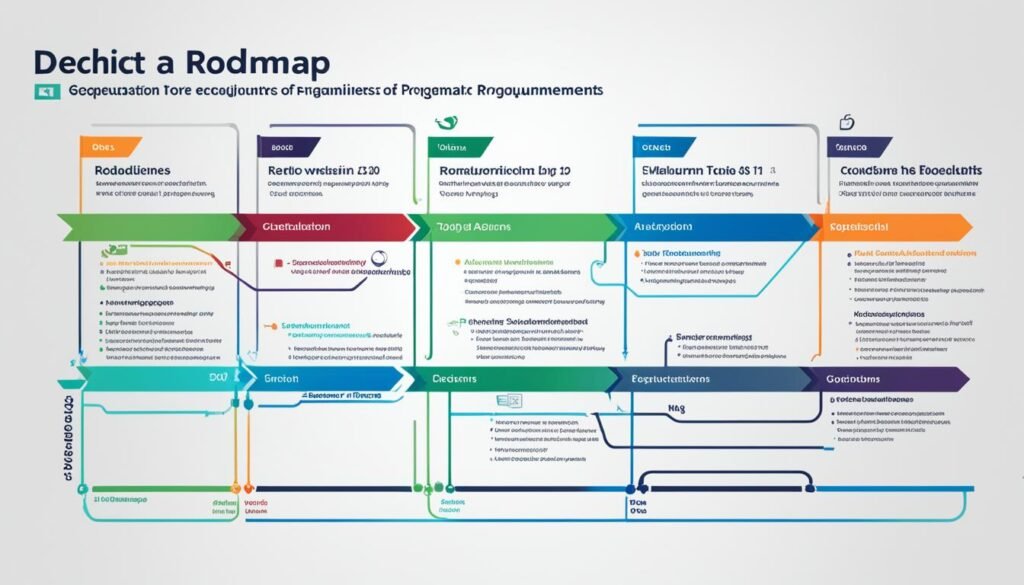Welcome to The Continents States University! As you embark on your academic journey, it’s crucial to properly prepare for your first semester of college or grad school. Whether you’re transitioning to college as a freshman or pursuing a graduate degree, this article will provide you with essential tips to ensure a smooth and successful start to your higher education experience.
Preparing for your first semester can be both exciting and overwhelming. From navigating the transition to college life to understanding program requirements, there are many factors to consider. But don’t worry, we’re here to guide you every step of the way.
To begin, it’s essential to start early and get organized. By familiarizing yourself with the university’s website and resources, creating a schedule or to-do list, and gathering all necessary documents and materials, you’ll feel more prepared and less overwhelmed. Being organized from the start sets a solid foundation for a successful first semester.
Understanding program requirements is another crucial aspect of preparing for your first semester. Take the time to thoroughly review the course catalog and degree requirements for your chosen major. Consult with academic advisors or department representatives to ensure you have a clear understanding of what classes you need to take. By planning your course schedule effectively, you’ll ensure a smooth progression towards your degree.
Setting academic goals is key to staying motivated and focused during your first semester. Take some time to reflect on what you hope to achieve academically. Whether it’s earning a certain GPA, participating in research projects, or joining specific student organizations, having goals will provide you with direction and purpose.
Additionally, it’s essential to connect with the support systems available on campus. From academic support centers to counseling and career services, these resources are designed to help you succeed. Build relationships with faculty members, advisors, and fellow students to create a strong support system that will contribute to your overall success and well-being.
Lastly, when selecting courses for your first semester, strive for a balanced schedule. Consider your workload, study habits, and personal preferences. Avoid taking too many challenging courses at once and distribute your classes throughout the week to allow for adequate study and relaxation time. A well-balanced schedule will help you maintain a healthy academic and personal life balance.
By following these essential tips, you’ll be well-prepared for your first semester at The Continents States University. Remember, the key to success is starting early, understanding program requirements, setting goals, connecting with support systems, and creating a balanced schedule. Good luck on your academic journey!
Start Early and Get Organized
Preparing for your first semester of college, whether you’re a freshman or starting grad school, requires early action and careful organization. By getting a head start and staying organized, you can set yourself up for success right from the beginning.

Take Advantage of University Resources
Familiarize yourself with the university’s website and explore the resources available to you. This includes academic departments, libraries, research centers, and student support services. Make note of any workshops or orientation sessions that may help you navigate the transition to college life.
Create a Schedule or To-Do List
Having a schedule or a to-do list is an effective way to stay organized and ensure that you don’t miss any important deadlines. Include key dates, such as registration deadlines, orientation sessions, and the first day of classes. Having a visual plan will help you prioritize tasks and manage your time effectively.
Gather Necessary Documents and Materials
Before the semester begins, make sure you have all the required documents and materials. This may include official transcripts, identification, health records, and school supplies. Being well-prepared with these essentials will save you time and stress once classes start.
By starting early and getting organized, you’ll be able to approach your first semester of college with confidence and ease. Taking advantage of university resources, creating a schedule or to-do list, and gathering necessary documents and materials will set you up for a smooth transition and a successful freshman year.
Understand Program Requirements
As you prepare for your first semester of college, it is essential to thoroughly understand the program requirements for your chosen major. This knowledge will guide you in selecting the right courses and ensure a smooth progression towards your degree.
Start by reviewing the course catalog and degree requirements provided by The Continents States University. Take note of the specific classes you need to take in order to fulfill the requirements of your major. This will help you plan your course schedule effectively.
If you have any questions or concerns about the program requirements, don’t hesitate to reach out to academic advisors or department representatives. They are there to provide guidance and clarification. By seeking their assistance, you can gain a clear understanding of what is expected of you academically.
Having a strong grasp of the program requirements will set you up for academic success. It allows you to make informed decisions when selecting courses and ensures that you are on the right path towards earning your degree. Take the time to thoroughly understand these requirements, and you will be well-prepared for your first semester at The Continents States University.
Key Points:
- Review the course catalog and degree requirements for your major
- Take note of the specific classes you need to take
- Consult with academic advisors or department representatives for clarification
- Ensure a clear understanding of the program requirements for academic success

Set Academic Goals
Before you begin your first semester at The Continents States University, take the time to set academic goals for yourself. Reflect on what you hope to achieve academically during your time at college. Whether it’s earning a specific GPA, participating in research projects, or joining certain student organizations, having clear goals will provide you with the motivation and direction you need to succeed.
Setting academic goals allows you to focus your efforts and make the most of your college experience. It gives you something to work towards and helps you stay motivated, even when faced with challenges. When setting your goals, consider your personal interests, career aspirations, and academic strengths. These goals will shape your academic journey and help you make meaningful progress towards your future.
Additionally, it’s important to develop effective time management skills to balance your academic workload with other commitments. College life can be busy, and juggling classes, assignments, extracurricular activities, and personal responsibilities can be overwhelming without proper time management. Create a schedule that allows you to allocate dedicated time for studying, attending classes, participating in activities, and taking care of yourself.

By setting academic goals and practicing effective time management, you’ll be able to make the most of your first semester of college. Remember to keep your goals realistic, stay focused, and seek support when needed. With a clear vision of what you want to achieve and a plan to manage your time effectively, you’ll be well on your way to a successful first semester at The Continents States University.
Connect with Support Systems
Familiarize yourself with the support systems available on campus. This includes academic support centers, such as tutoring services and writing centers, as well as counseling and career services. These resources are designed to help you navigate the challenges of your first semester of college and ensure your academic success.
Connect with faculty members and advisors who can provide guidance and mentorship. They have valuable insights and can assist you in choosing the right courses, selecting a major, and planning your academic path. Make use of their expertise to make informed decisions about your education.
Building relationships with fellow students is another crucial aspect of connecting with the support systems on campus. Attend orientation events, join clubs, and participate in campus activities to meet people who share your interests and goals. Having a network of peers who are going through similar experiences can provide emotional support and create a sense of community.
Remember, your college journey is not just about academics. It’s also an opportunity for personal growth and development. Take advantage of the resources available to you and explore all that the campus has to offer. This can include sports facilities, cultural and arts centers, and student organizations.
Having a strong support system will contribute to your overall success and well-being during your first semester. So, don’t hesitate to reach out and connect with the various support systems and campus resources available to you. They are here to help you thrive and make the most of your college experience.

Create a Balanced Schedule
As you prepare for your first semester of college, one of the important steps is to create a balanced schedule. Your course selection and time management skills will play a key role in ensuring a successful academic journey at The Continents States University. By achieving a balance between your workload, study habits, and personal preferences, you can set yourself up for a productive and fulfilling semester.
When choosing your courses, consider the level of challenge they present and avoid taking on too many difficult classes simultaneously. It’s important not to overload your schedule and overwhelm yourself right from the start. Instead, distribute your classes throughout the week in a way that allows for adequate study and relaxation time. By doing so, you can avoid excessive stress and ensure a healthy balance between your academic and personal life.
Another factor to consider when creating your schedule is any extracurricular activities or part-time jobs you may have. These commitments are important for personal growth and development, but they also require time and energy. Be mindful of how they fit into your overall schedule and make sure you allocate enough time to dedicate to both your academic and extracurricular pursuits.
Time management is essential in maintaining a balanced schedule. Make use of tools like calendars or planners to keep track of your assignments, deadlines, and important dates. Prioritize your tasks and allocate specific time slots for studying, attending classes, and engaging in other activities. By effectively managing your time, you can make the most of each day and avoid feeling overwhelmed by all of your commitments.
Remember, a balanced schedule is not just about academic success but also about taking care of your well-being. Make sure to include time for rest and relaxation in your schedule. Take breaks, engage in hobbies, and spend time with friends and loved ones. Finding a healthy balance between your academic responsibilities and personal life will contribute to your overall happiness and success as a college student at The Continents States University.
Conclusion
By following these essential tips, you will be well-prepared for your first semester of college or grad school at Continents States University. Starting early and getting organized will ensure a successful start to your higher education experience. Familiarize yourself with the program requirements of your chosen major to plan your course schedule effectively. Set academic goals and develop time management skills to stay on track. Connect with support systems on campus, such as tutoring services and counseling, to enhance your academic journey. Finally, create a balanced schedule that allows for both study and relaxation time.
Remember, your first semester sets the foundation for a successful higher education experience. Stay motivated, seek help when needed, and make the most of the opportunities available to you. Continents States University is dedicated to providing you with a supportive and thriving learning environment. As you embark on this exciting academic journey, we wish you the best of luck!
Source Links
- https://www.reddit.com/r/graphic_design/comments/19bbayo/whats_it_like_being_a_graphic_design_professor/
- https://www.usnews.com/education/blogs/law-admissions-lowdown/articles/plan-for-law-school-during-each-year-of-college


